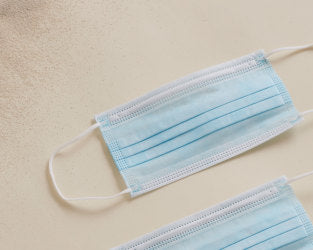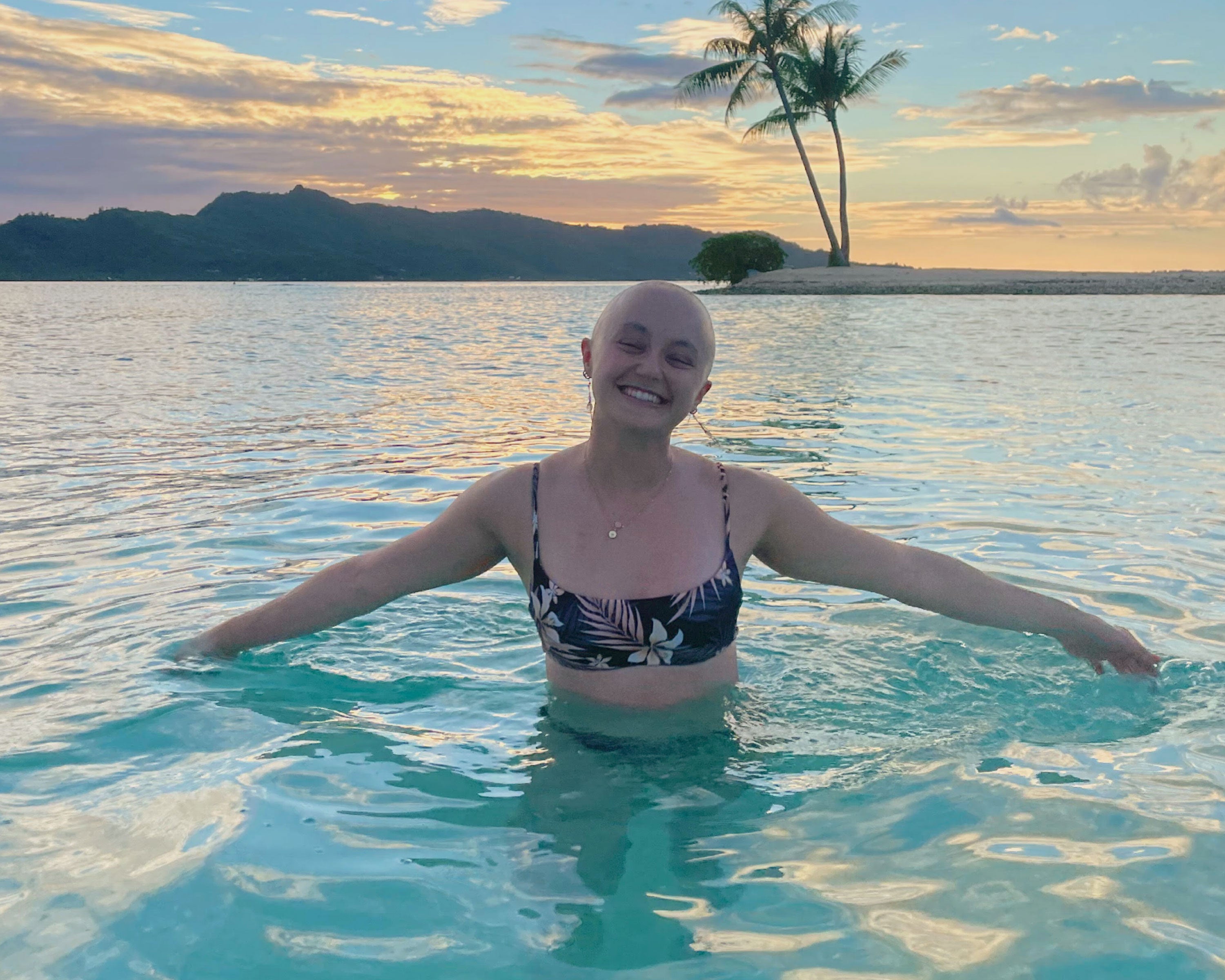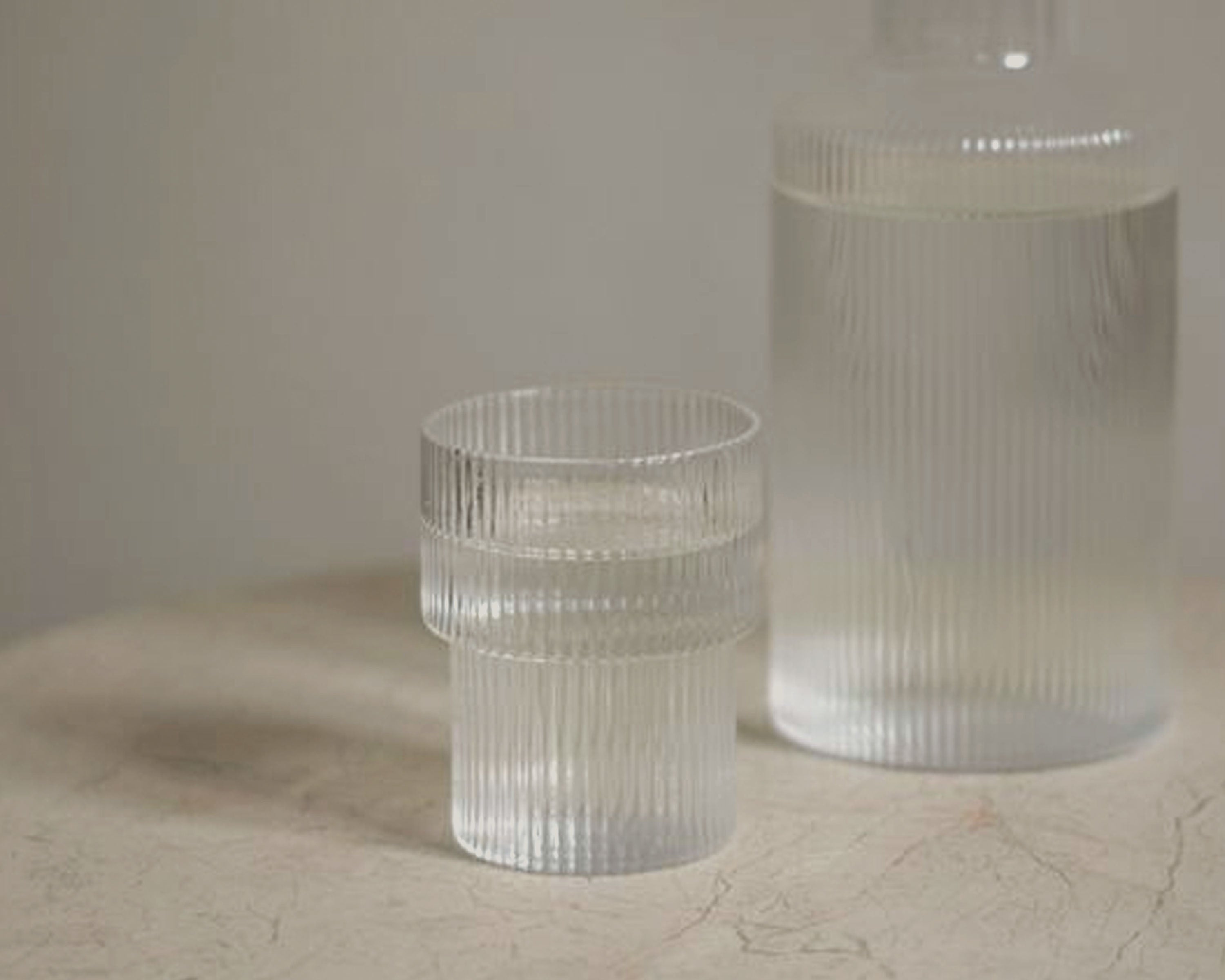Before Covid, the idea of avoiding gatherings, mask-wearing and social distancing were completely foreign to the vast majority of people. But for many cancer patients whose immune system is compromised, this is a part of our daily reality. I was very used to quarantine when Covid began. I had quarantined for a hundred days after my stem-cell transplant. In fact, all through my treatment I had to be extremely cautious. If anyone around me had so much as a sniffle, they weren’t allowed to see me. My doctors didn’t allow me to go shopping or to the grocery store for most of 2018 and 2019. I remember when I was finally given the green light to go shopping, I went to Marshalls — and I was there for four hours! My husband Ben called me to find out what I was still doing there, and the truth was I was just so happy to be in the world — in an actual store — and touch things!
Just as I had discovered some newfound freedom, it was taken away from me in a much more aggressive way when Covid hit. Suddenly, everyone in my life was a potential exposure. Everything I considered to be a “home” and place of healing felt unsafe. My parents who live in Central Queens — which was considered the epicenter of the pandemic — were a vector. My husband, who was my biggest refuge, was a vector. Even the most mundane tasks like taking out the trash and riding the elevator — things I did without a second thought when I had cancer pre-Covid – were tinged with vector status.
When Covid began, I was only 14 months in remission. And, importantly, I was only 12 months post-transplant. The transplant deleted my immune system and uploaded the seed for a new immune system through my stem cells — which meant I had to be a “bubble girl” in order to shield myself from any potential infections until I could get a slew of vaccines. As New York City effectively went into a lockdown in March, I was nearing my one-year follow-up appointment — a huge, milestone visit which would clear me to get vaccinations for everything I was missing, like the mumps and measles vaccine, among others.
I begged Memorial Sloan Kettering (MSK) to allow me to come in for that appointment, but like every hospital in New York, they were canceling all non-urgent appointments and had to delay my vaccinations until July 2020. The scariest part was that I was missing the pneumococcal vaccine that protects against serious and potentially fatal pneumonia infections. None of my doctors connected the dots for me, but someone who I call my Fairy Godfather — a friend who was working at the MSK I.C.U. — pointed out the obvious: COVID-19 can of course spread to the lungs, potentially causing pneumonia. He said to me, “Li, you have to leave the city. Even people who do have the pneumococcal vaccine are ending up in the I.C.U. I’m afraid of what will happen if you contract Covid.”
There was another big life factor that was complicating matters. My husband Ben is a Chief Cardiovascular Fellow at Mount Sinai — a hospital affiliated with Elmhurst Hospital in Queens. At the time, Elmhurst was considered to be “the epicenter within the epicenter” because of the extraordinary surge of cases, and over the course of March, essentially all cardiology work was cancelled and Ben and his team were utilized in the Covid I.C.U.
This presented us with so many questions we didn’t have the answers to: Do we continue to live together under one roof? Where would I go? Where would he go? Nobody from the hospital had a plan for families who were facing similar dilemmas. Every day when Ben left for work, I felt as though I was bidding farewell to my husband going off to war. There was not enough PPE in hospitals, absolutely no vaccine in sight, and in those early days no one really knew how to manage anything. The war metaphor didn’t seem so far-fetched. My dad had a conversation with Ben, asking, “Do you really have to go ‘serve’?” But the conversations came back to his big, undeniable feeling of duty. So we made the decision that I would leave our apartment. I wanted Ben to have a comfortable place to reset each day.
At the end of March, I moved out — first staying at a friend’s place in Connecticut, then moving in with my in-laws in rural Massachusetts. There’s no way to sugar coat it: it was an extremely dark period of time. I was trying to finish my fund raise for Alula, while hearing stories of war that Ben was living through each day. As the weeks went by, it was really starting to affect both Ben’s mental health and mine that we weren't together.
Fortunately over that time that I moved out, Mount Sinai pulled off a massive PPE haul from China, obtaining the N95 respirators they desperately needed. And as cases began to come down, they started to reopen cardiology work again, and Ben was able to stop seeing COVID patients. That’s when I moved back home to New York City in early May. And now that he’s fully vaccinated (although I have yet to make the vaccine list), we are starting to breathe a bigger sigh of relief.
CANCER CARE ON PAUSE
Of course, I’m still waiting for “normalcy” to resume. There are so many after-effects of treatment that I deal with on a daily basis, and many of them require in-person care that I’ve had to put on an indefinite pause during Covid. For instance chemotherapy threw me into medically-induced menopause at the age of 32, and the acupuncture that was helping me cope with some of the symptoms like hot flashes hasn’t been an option. Then there’s the deep, dull pain that has set into my chest wall as a result of damage caused by radiation therapy (aka radiation fibrosis); while physical therapy helps, I haven’t felt safe leaving my Greenpoint apartment for those appointments either. I’m doing my best to manage these issues with the help of telemedicine, but my care feels lopsided at best.
When I was diagnosed with cancer, weekly therapy became a ritual I actually looked forward to. I loved getting to my therapist’s office 30 minutes early, making myself a cup of tea, carving out that time for myself. Even the Uber ride to and from therapy was extremely precious — a chance to ease from my workday into a different headspace. While virtual appointments are helpful, I do miss those rituals. I haven't been in an Uber since last March — never mind a plane or a train for an actual vacation!
Pre-Covid, I was considered “safe” in the outside world as long as I could put a bubble around me. That meant I could put on a mask, a pair of gloves, and go out — cautiously — into the world. Whether that meant taking Uber rides to see my Reiki healer or going on long walks in Central Park, I didn’t feel confined to my apartment. The only requirement was that I had to map my route to ensure I wasn’t walking past construction sites, where the air could kill me. With Covid, it feels like the air I breathe in the outside world — not just near construction sites — is a constant threat.
In the midst of all the challenges of this past year, I have been forced to look for new sources of respite that don’t involve trips to Marshalls, Ubers, or plane rides — and I’ve found a few.
One is an online workout I do a few times a week: The Class by Taryn Toomey, which is a mix of breathwork, cardio and yoga. I refer to it as my “woo-woo” class because there is a fair amount of cathartic screaming and breathwork, “letting it out” through noise. It feels really good to move my body in a way that’s focused on meditative breath and healing. Plus the stretching has really helped my fibrosis, a side effect of radiation treatment.
Another respite has been in reading more books. I've gotten really “analogue” during Covid — a trend that started during chemo, when being on the computer all day was causing eye strains and headaches. And like many others during the pandemic, I’m also finding joy in the kitchen, trying new recipes that I never had the patience for before.
The one silver lining during Covid is that there’s literally nowhere to rush to. Whether I’m making a meal or reading a book, I have the luxury of being able to start something, dig into it, and finish what I begin. The sense of completion I get from everyday acts feels comforting — especially when there’s so much else in life that doesn't have a known ending.
This article is for informational purposes only and is not a substitute for medical advice, diagnosis, or treatment. Please keep in mind every individual’s situation is different, and you should not take any actions concerning your body and well-being before consulting with a healthcare professional.
Let your loved ones know what you actually need
Easily add items from the Alula shop to your registry, and share it with friends and family who ask.



